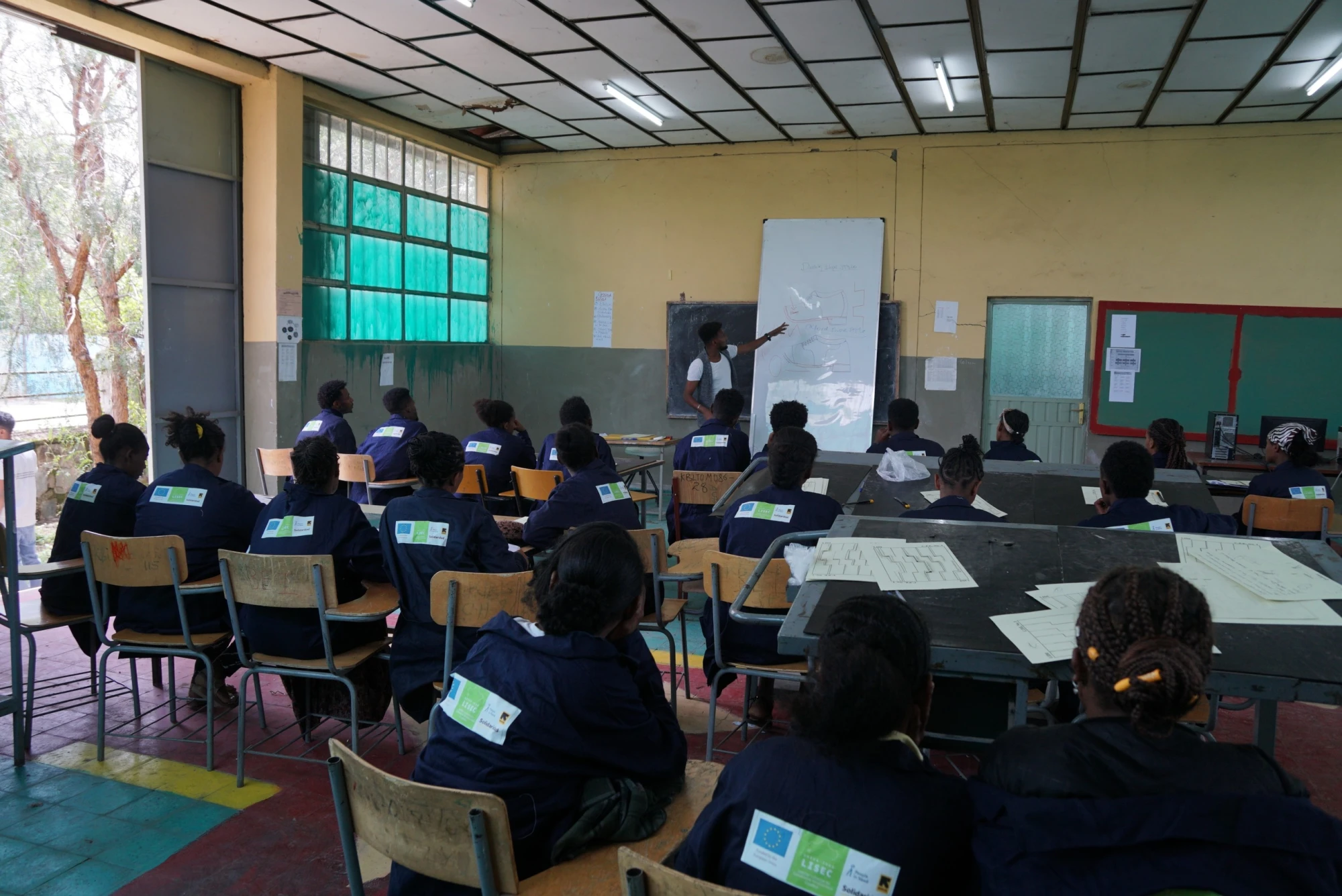 A new leather processing programme, 42 new enterprises, 22 women's saving groups, and 2,876 young people with enhanced business development capacities—these are just some of the achievements within The Leather Initiative for Sustainable Employment Creation (LISEC).
A new leather processing programme, 42 new enterprises, 22 women's saving groups, and 2,876 young people with enhanced business development capacities—these are just some of the achievements within The Leather Initiative for Sustainable Employment Creation (LISEC).
The three-and-a-half-year Leather Initiative for Sustainable Employment Creation (LISEC) project, funded by the European Union under the Emergency Trust Fund for Africa and co-funded by the Czech Development Agency, has ended. Therefore, we are proud to share how this project has contributed to a greener and more sustainable leather sector in Ethiopia.
Together with our partners, Solidaridad and the International Rescue Committee (IRC), we worked towards transforming the leather sector in Ethiopia. We focused our LISEC activities in the heart of the Ethiopian leather industry - Modjo and its surrounding areas.
The highest unemployment rates globally and within Ethiopia are among women and youth. Targeting them is a smart and strategic approach to inclusive and rapid economic growth. The LISEC project created green jobs, supported local economic and social development, and enhanced industrial and labour relations. We also focused on education as a pathway to the job market for young people, focusing support on colleges in Modjo and the surrounding areas.
We supported leather skills training in five polytechnic colleges, donated 80 leather sewing machines to TVET colleges, and trained 605 young people in leather production. We also launched a new leather processing programme at Modjo TVET College and enhanced the business development capacities of 2,876 students through the Youth Leadership Programme.
Besides supporting regional vocational schools, we also worked with local businesses to improve their capacities, working with local communities to establish new companies and create new job opportunities. We established 42 new micro, small, and medium enterprises in the leather sector and supported 17 existing ones with training and materials. We also created 22 women's savings groups to address and support female economic independence.
Ensuring fairness and decent work conditions means addressing wage disparities, implementing mandatory workplace safety policies, and establishing trusted grievance redress mechanisms. To these ends, we emphasized safeguarding women's rights with policies on health checks, safety equipment, anti-harassment measures, and improving access to childcare and transportation. We provided personal protective equipment and training for workers across tanneries around gender-based violence prevention.
Throughout the project, we also consider sustainability and environmental impact. We improved solid waste management in four tanneries and assisted them in adopting chrome-free tanning technology. We also equipped tanneries and one TVET College in Modjo with machines to transform leather waste into new products.

(© Tereza Hronová)
As Ethiopia Country Director Klára Jelínková highlights, these approaches help address some of the most pressing problems in the region. She explains,
Overall, the LISEC project has made substantial progress in greening Ethiopia's leather sector, creating employment opportunities, and improving both social and environmental conditions in Modjo and the surrounding towns.

 (© Tereza Hronová)
(© Tereza Hronová)